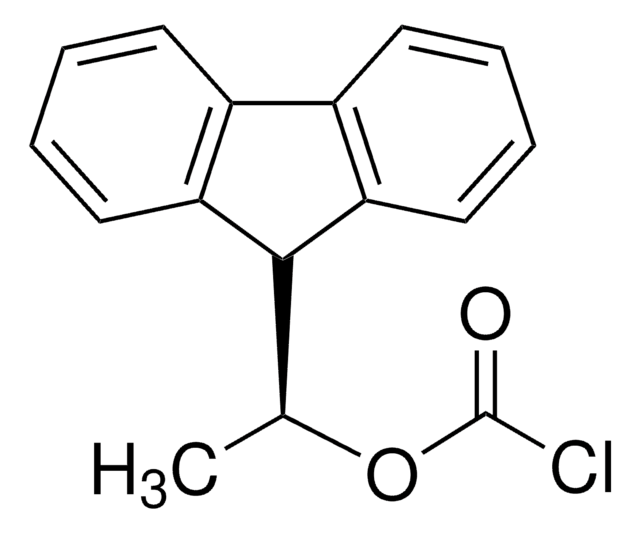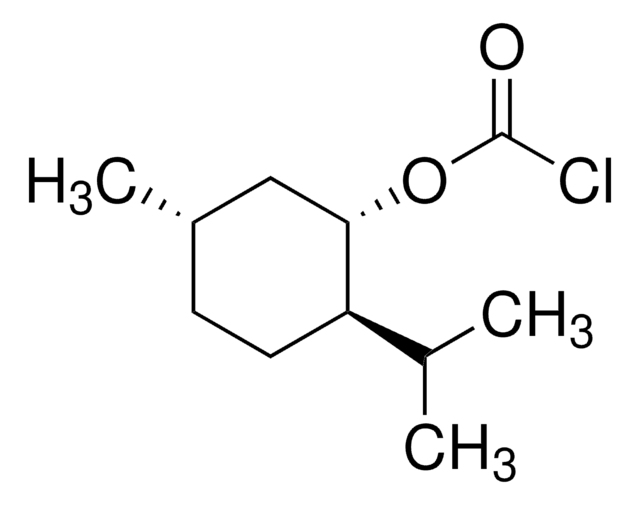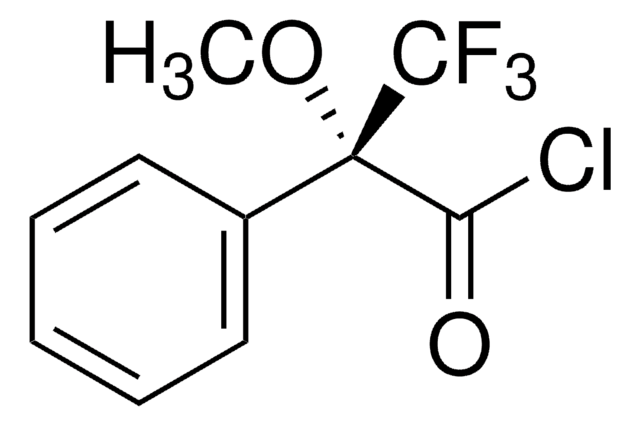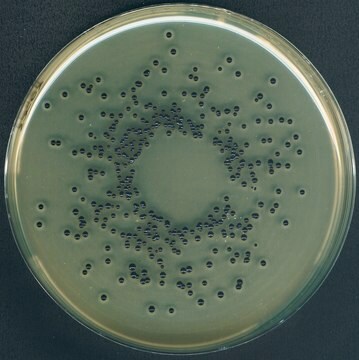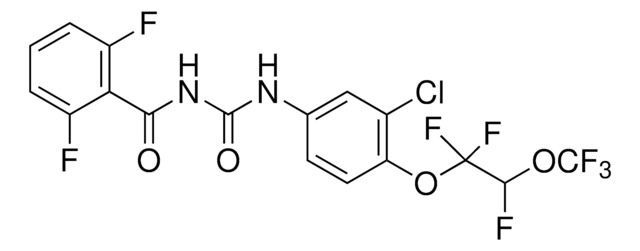23182
(+)-1-(9-Fluorenyl)ethyl chloroformate solution
≥18 mM in acetone, for chiral derivatization, LiChropur™
Synonym(s):
(+)-FLEC solution
About This Item
Recommended Products
grade
for chiral derivatization
Quality Level
product line
ChiraSelect™
optical purity
enantiomeric ratio: ≥99.0:1.0 (HPLC)
quality
LiChropur™
concentration
≥18 mM in acetone
technique(s)
HPLC: suitable
refractive index
n20/D 1.359
storage temp.
2-8°C
InChI
1S/C16H13ClO2/c1-10(19-16(17)18)15-13-8-4-2-6-11(13)12-7-3-5-9-14(12)15/h2-10,15H,1H3
InChI key
SFRVOKMRHPQYGE-UHFFFAOYSA-N
Looking for similar products? Visit Product Comparison Guide
Related Categories
General description
Application
Physical form
Other Notes
Legal Information
Not finding the right product?
Try our Product Selector Tool.
Signal Word
Danger
Hazard Statements
Precautionary Statements
Hazard Classifications
Eye Irrit. 2 - Flam. Liq. 2 - STOT SE 3
Target Organs
Central nervous system
Supplementary Hazards
Storage Class Code
3 - Flammable liquids
WGK
WGK 2
Flash Point(F)
1.4 °F
Flash Point(C)
-17 °C
Choose from one of the most recent versions:
Certificates of Analysis (COA)
Don't see the Right Version?
If you require a particular version, you can look up a specific certificate by the Lot or Batch number.
Already Own This Product?
Find documentation for the products that you have recently purchased in the Document Library.
Our team of scientists has experience in all areas of research including Life Science, Material Science, Chemical Synthesis, Chromatography, Analytical and many others.
Contact Technical Service